
Don’t worry, there are solutions.
The world has been under high stress for the last several years. Is it any wonder that CBD sales have exploded? Even with the pervasiveness of CBD products on the market, there are still growing pains that you, the CBD oil manufacturers, have to endure. As with any industry that sprung up so quickly and has a massive cultural stigma attached, manufacturers haven’t had the luxury of decades upon decades of refinement. For example, alcohol producers rarely see laws change so rapidly, and the public has long been able to enjoy alcoholic beverages legally. While it’s not a one-to-one comparison, CBD seems new and mysterious to many, while alcohol has always just “been there”.
The following challenges facing CBD oil manufacturers are, thankfully, not impossible to overcome. Some will be handled by the progression of time, others must be dealt with on a business-to-business level. Let’s see what the issues are and how you can deal with them.
1. The Law
Now, it should be pointed out upfront that the 2018 Farm Bill has made many legal headaches for CBD oil manufacturers a thing of the past, but growing the plants that produce CBD isn’t as legally simple as growing wheat or tomatoes. According to the Farm Bill, producers are allowed to grow hemp as long as it contains less than 0.3% THC, the psychoactive compound that results in a “high.” Even with more widespread state legalization of marijuana growth, Federal law still rules, and if you want to grow plants for your CBD business, you’ll have to abide by the rules.
Solution to the Challenge: Make sure that your hemp plants are below the THC threshold. Hemp naturally has less THC than marijuana, but it’s still there, and it can be over the limit if you’re not careful. The USDA maintains a list of approved labs for hemp testing. Of course, even if you comply with Federal regulations, you’ll need to be aware of which states still outlaw the sale of CBD products.
2. The Stigma
This is arguably a larger problem than the law. Hemp can be tested and approved, but getting the public to understand the differences between CBD and THC is more difficult. According to Invisibly’s Realtime Research survey of more than a thousand US adults, 68% of them were unaware that CBD and marijuana were two different substances. Even as more and more states legalize the sale of CBD products, there will still be a cultural element that will take time to evaporate.
Another part of the issue is that many people don’t think CBD works. Part of this is due to a shortage of thorough testing for some claims, such as relief from chronic pain, though more studies are starting to appear. Another problem is that some CBD products contain less than the advertised amount of CBD, which can lead to them being ineffective.
Solution to the Challenge: As for what CBD oil manufacturers can do, the first, most important thing is to put in the advertised amount of CBD! Fighting the stigma means being above board in all marketing, promotions, and required packaging information. Also, time will assist in the stigma going away as the products become more pervasive in the popular culture.
3. Payment Processing
Thanks to that confusion between CBD and marijuana, getting companies to process payments for CBD products can sometimes prove tricky. While marijuana-derived THC remains illegal at the federal level, hemp-derived THC is completely legal. Still, CBD manufacturers are seen as “high risk,” many banks, credit card companies, and lenders charge them much higher rates (if they’ll do business at all).
Solution to the Challenge: While going all cash is a solution, it’s not an ideal one. Most CBD oil manufacturers instead must turn to high-risk payment processors. These are payment processors that are used to dealing with companies that have high transaction volume, accept international payments, have poor credit, or work in high-risk industries. As you might imagine, not every high-risk processor is reliable. If you’re looking for one, you’ll need to do some research to find the one that will best serve you.
As with the stigma problem, this is another issue that may be solved with time. As CBD oil manufacturers are increasingly seen as regular, everyday businesses, lenders will ease their restrictions.
4. Supply Quality
Getting quality hemp for making CBD oil can be tough. If you don’t grow it yourself, you’re at the mercy of what you can buy. Much of the CBD oil in the marketplace comes from emerging markets with poorer quality control and manufacturing processes than what you’ll find in the US. As for marijuana-derived CBD, the University of Mississippi is the only federally certified, pharmaceutical grade grower in the country.
Solution to the Challenge: Testing, as mentioned, is crucial, but there’s more to it if you want to assure potential customers (and the authorities) that your hemp is legal and effective. Using the standards that pharmaceutical and food manufacturers employ shows commitment to the safety and efficacy of CBD. Stringent operating procedures and top-notch manufacturing processes are a must.
5. Competition
This may sound like a problem common to every industry, and yes, it is. But, because of CBD’s relative newness and market value potential, new competitors are going to spring up constantly. As CBD becomes more entrenched in the culture, larger players with deep pockets and established brands will begin to introduce CBD products of their own or just buy out smaller brands.
Solution to the Challenge: Establish yourself now. This is the time, when the CBD market size is $4.9 Billion as opposed to the $47 Billion it will be worth by 2028. Your processes, products, marketing, and branding have to all be on point. You will also have to follow and understand market trends to keep your product lines headed in the right direction.
Also, ensure your packaging line is running smoothly. Do you have the right equipment? Is it running properly? Do your employees know how to run it? Automation will let you get more products out the door, but only if the right pieces are in the right order. Evaluate your packaging line to see if it’s running at peak efficiency or if there are changes that need to be done.
6. Labeling
The FDA takes claims made on labels and in marketing seriously. CBD cannot be marketed as a drug, at least for now. Any claims made regarding health benefits will land CBD oil manufacturers in serious trouble. CBD packaging must conform to the FDA’s rules and not claim to be a drug, dietary supplement, or as food. Only cannabidiol has been approved for the treatment of any condition, that being as an anti-seizure medication for children. Even using buzzwords such as “all-natural” or “from nature” can be seen as falsehoods.
To take another tack on the subject of labeling, CBD packaging needs to present well to consumers, too. Customers expect that the CBD products they purchase look like any other product on a grocery store shelf. Straight, bubble-free labels with eye-catching graphics should the norm rather than the exception.
Solution to the Challenge: Make sure your labeling and packaging are in line with the FDA’s regulations and consumer expectations. It does CBD oil manufacturers no good if their packaging makes false claims. Also, upping the labeling game by abandoning hand labeling for a dedicated labeling machine will improve quality, efficiency, and output.

Up Your Labeling Game With Pack Leader USA
At Pack Leader USA, we enable CBD oil manufacturers just like you to present professional, well labeled products to consumers with our full line of CBD labeling machines. We understand that choosing the right labeling machine can be difficult, so download our CBD Labeling Equipment Guide to get our advice on how to choose the right labeler. We look forward to partnering with you in creating truly stunning labels!
Resources:
.webp?width=200&height=114&name=2x-Packleader-logo-large%20(1).webp)

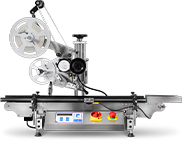
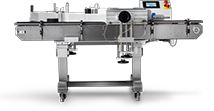
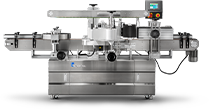
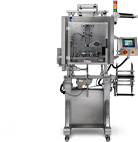
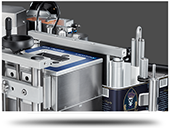
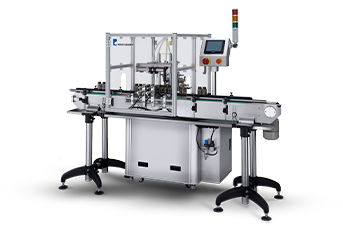
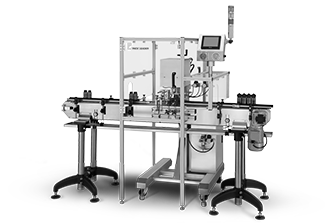
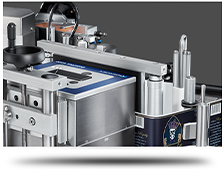




.webp?width=360&name=2x-color-logo%20(1).webp)